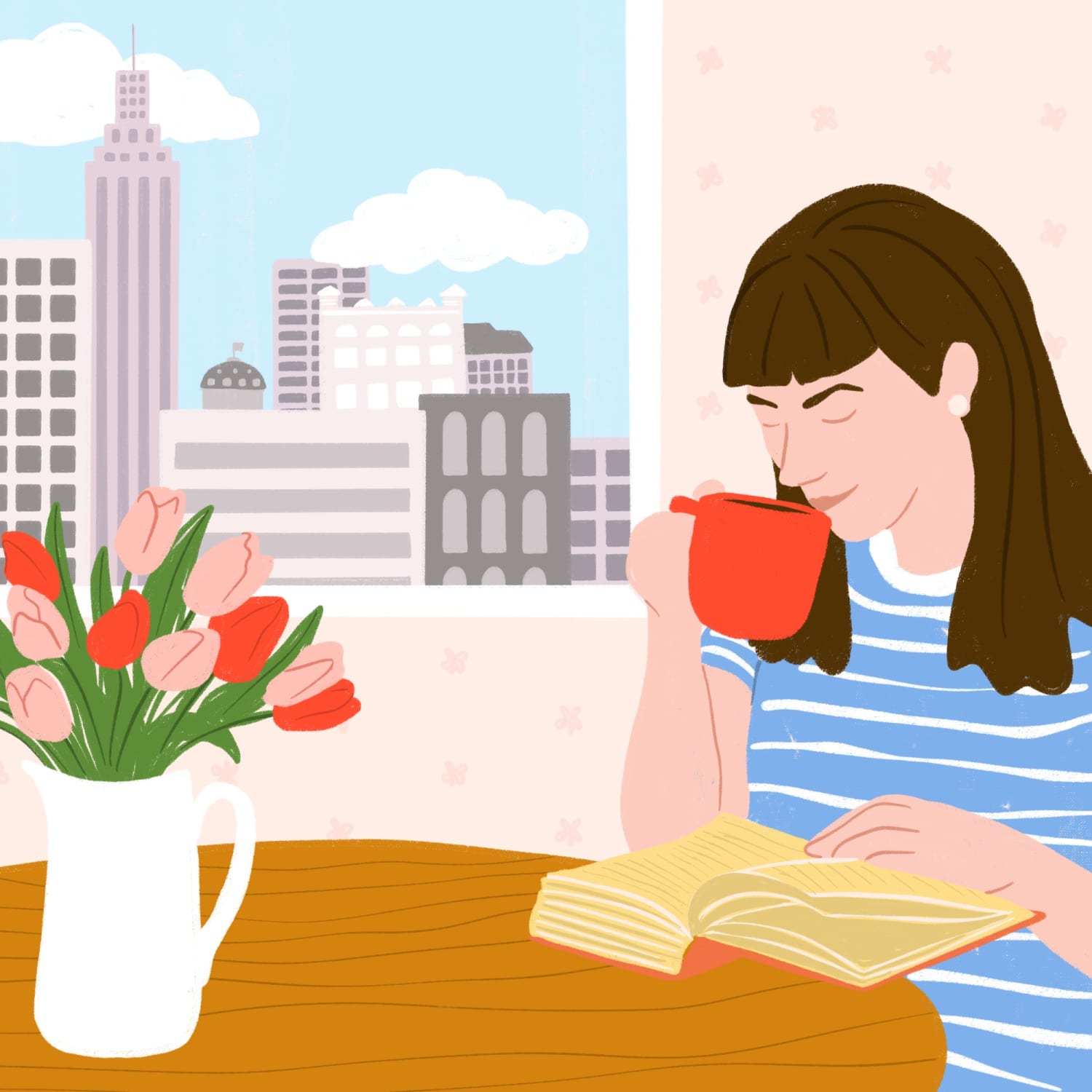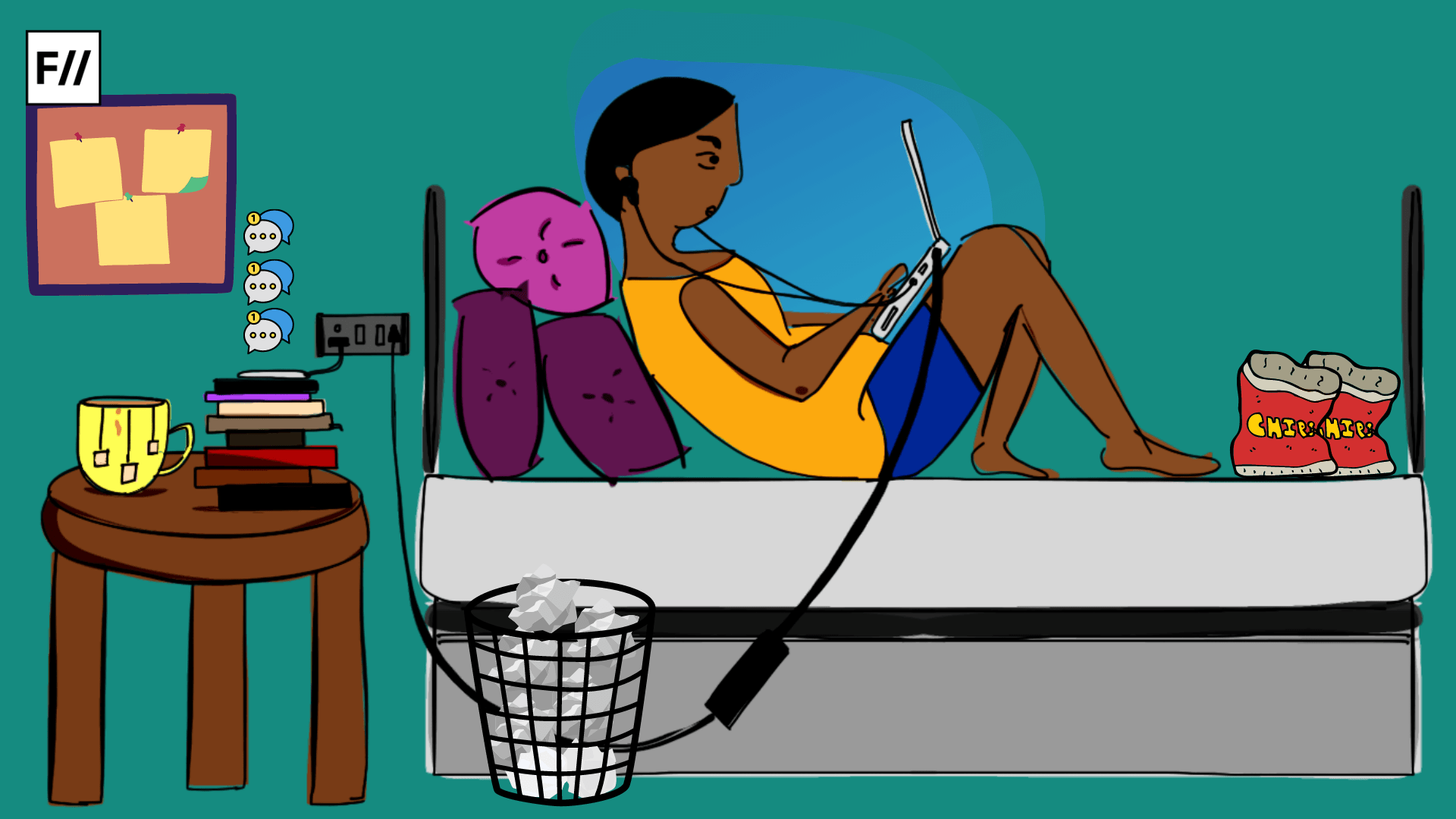I always loved the word feminism. During high school, I discovered the big beautiful words – intersectionality, feminism, equality – and although quite silly, I was ecstatic that these terms did not have the extension of “man words” in them. Oftentimes, I have noticed that in my own household, people misinterpret the word feminism. I tell them tirelessly that feminism is defined as uplifting oppressed genders and their rights on the grounds of equality. However, the term still upsets the majority of them.
Somedays, exhaustion does take over me. I remember an incident when I was watching the U.S Open Women’s Singles Championship on the television with my family and cousins. The channel was changed frequently to the ongoing men’s match, and as a tennis enthusiast, I was busy enjoying both of them.
To my surprise, a person who commented on women’s sports said they found it boring and that women should stick to fancy walks instead of being aggressive on the field. I was furious. I was hurt. I was repelled. Among all these feelings, I was mostly tired. The sexist conversation carried on, yet, I stayed in the room. Am I still a feminist? What makes me one in the first place?

Similar experiences have dampened my ability to stand up for myself in a room full of people I know. I soon identified the difference in my approach when I was away from my household. Power, assertiveness, and anger came to me easily. Why then, do I hesitate to speak up in my house? In the comfort of my room?
There was another incident, where a neighbour visited our house for a small conversation. He had a lot of things to say about my hairy legs, broad shoulders, stomach with a personality, and my forwardness. Needless to say, I felt the same emotions as the last time. Yet, I immediately found my way to the comfort of my room: my feminist room.
I believe that it is really important to check one’s privilege. Acknowledging my caste privilege and using that power to abolish the caste system in any way I can is one of the things that I can do to support intersectionality. However, as a trans-non-binary, and autistic person, I have experienced immense discrimination. To me, intersectionality begins with small changes like watching one’s language (avoiding ableist comments), understanding individual differences, and the opportunity for the minority communities to recount their lived experiences
My anger seeped out in the tweets I sent, posts I scheduled, and rants to my friends. Does it still make me a feminist if I am one only behind the door? Thoughts like this constantly worried me, it was something I chose for myself, so I soon realised that I can also define it for myself.
Feminism means a lot of things to me, and one definition along with the rest is to take space for myself. To give myself the option to rest. Like Rebecca West once said, “I myself have never been able to find out precisely what feminism is: I only know that people call me a feminist whenever I express sentiments that differentiate me from a doormat.”
Our society is driven by an oppressive, patriarchal system, where the privileged live a fruitful life and the oppressed communities end up putting their life at stake even for basic needs. Intersectionality to me means that everyone has their own distinctive experience of injustice and that they deserve support regardless of their social status, gender, race, sexuality, and so on. Feminism has to be inclusive where the community strives to achieve equality for everyone. The majority of society believes that gender and race are two very different issues.
Also read: Feminism In A Sexist Household: Navigating Feminist Discourse With Conservative Parents

I still have a lot to learn about what it means to be a feminist. I still have a lot to learn about how to be a feminist in my own abode, without giving in to the fear of ridicule and judgment. Even so, I am still a feminist. I am a feminist in my room because it’s where I’m the loudest about my opinions. But I am also a feminist outside my room because I still have a huge problem with the gendered society
I believe that it is really important to check one’s privilege. Acknowledging my caste privilege and using that power to abolish the caste system in any way I can is one of the things that I can do to support intersectionality. However, as a trans-non-binary, and autistic person, I have experienced immense discrimination.
To me, intersectionality begins with small changes like watching one’s language (avoiding ableist comments), understanding individual differences, and the opportunity for the minority communities to recount their lived experiences.
Feminism liberates everyone, it doesn’t discriminate. It brings us closer to a society with no gender binaries, it allows a human to be exactly what they want to be, instead of succumbing to the rules imposed by society on how one should be. It allows men to dress up, and women to body build and opens up millions of parallels that one can choose from.
Our world will be a happier place if people find the freedom to take up roles in the society that they want to, instead of the ones that they are pressured into.

I still have a lot to learn about what it means to be a feminist. I still have a lot to learn about how to be a feminist in my own abode, without giving in to the fear of ridicule and judgment. Even so, I am still a feminist. I am a feminist in my room because it’s where I’m the loudest about my opinions. But I am also a feminist outside my room because I still have a huge problem with the gendered society.
I am a feminist if I want this to change. I am a feminist when I am loud, silent, scared, and confident. As Alok Vaid-Menon puts it, “We want a world where boys can feel, girls can lead, and the rest of us can not only exist but thrive. This is not about erasing men and women but rather acknowledging that man and woman are two of many—stars in a constellation that do not compete but amplify one another’s shine.” The world is plagued with gender inequality, and there is no one way to change it. I am a feminist, and I will always be one.
Also read: Generation Gap: The Conflicts And Occasional Joys Of Negotiating Space With The Elderly
Featured Image Source: Ritika Banerjee for Feminism In India
About the author(s)
Prathyusha [they/them] is a queer writer from Chennai. When they are not reading, they are either baking or buying books





So insightful!